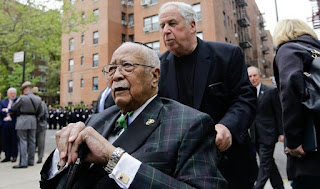All the times politicians called for fixing NYC’s property tax system - Mayor Dinkins was first
All the times politicians called for fixing NYC’s property tax system
Decades after Dinkins’ commission, there’s been little headway.
By Jana Cholakovska, City/StateFebruary 5, 2020
For years, politicians have criticized New York City’s property tax system as unfair, outdated and overly complex. And for years, little has been done to fix it.
The current system dates back to 1981, when the state Legislature passed a law that divides property in the city into four classes: residential properties with one to three units; residential properties with more than three units; utility company equipment and special franchise property; and all other real property, such as stores, offices, and factories.
Over the years, critics have complained about wide disparities in how much property owners have to pay, both from one class to the next and from one neighborhood to the next.
Many officials have vowed to reform the system over the years, but have stalled or run into political opposition. Complicating things is that any major changes would have to be approved in Albany. While the de Blasio administration and the New York City Council are optimistic that a new report will pave the way for real changes, a top City Hall official last year warned that time may be running out – although she quickly reversed herself.
Here’s a history of the times key elected officials called for reforms – with little success.
1993: New York City Mayor David Dinkins established the New York City Real Property Tax Reform Commission, which found that the property tax system was inherently unfair and benefitted people with higher incomes. The report concluded that “he property tax in New York City not only appears unfair, it is unfair.” Dinkins, however, was unable to pass any reforms since the report came out two days before he handed over the mayorship to Rudy Giuliani. Many of the report’s central suggestions, like uniform residential valuation, a revised class system and relief for low income residents, are still relevant today.
Read full article.



Comments
Post a Comment